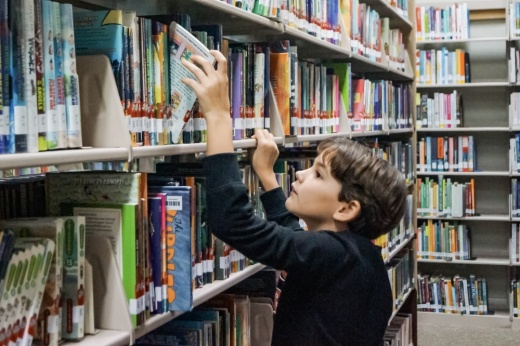Book vendors must issue ratings designating “sexually explicit material and sexually relevant material” before they can sell materials to school districts. The new standards are based on House Bill 900, a law approved by the Texas Legislature in May.
Rep. Jared Patterson, R-Frisco, has said his bill, also known as the “Restricting Explicit and Adult-Designated Educational Resources Act,” would prevent students from accessing inappropriate materials at school and increase transparency for parents.
What you need to know
The SBOE approved the standards with a 13-1 vote during its Dec. 13 meeting. Schools may not offer “harmful,” “sexually explicit,” “pervasively vulgar or educationally unsuitable” materials in libraries, classrooms or online, the rules state.
Books cannot be removed solely because of the “ideas contained in the material” or the background of the author and characters, according to the bill.
The Texas State Library and Archives Commission must adopt the standards by Jan. 1. Book vendors will then have until April 1 to review and rate their products.
The new rules are part of a conservative effort to increase parents’ input in their children’s education.
“Parents deserve to know what books are in school libraries,” Gov. Greg Abbott said as he signed HB 900 in June. “Some school libraries have books with sexually explicit and vulgar materials. I’m signing a law that gets that trash out of our schools.”
A legal challenge
Several book vendors and associations challenged the READER Act in court, arguing it is too broad and targets protected speech.
The act also “grants the government unchecked licensing authority to dictate which books are allowed in public schools and which booksellers can conduct business with public schools,” the lawsuit reads.
In September, a U.S. district judge temporarily halted the implementation of HB 900 after he determined the law was “unconstitutionally vague.” The state quickly appealed the ruling, and the case is pending before a federal appeals court.
What they’re saying
Patterson praised the SBOE for approving the standards in a statement on X, formerly Twitter.
“What started with concerned moms at the dinner table led to calls for local accountability and, eventually, the passage of historic legislation has now progressed into the first-ever mandatory library collection development standards,” Patterson said.
Patterson said parents should be the “primary decision makers” in what materials their students access. HB 900 states parents must sign a consent form before students can check out “sexually relevant” material from school libraries.
In the lawsuit, book vendors expressed concerns that the law would “cause a recall of many books in K-12 public schools, bans of even more, and the establishment of an unconstitutional—and unprecedented—statewide book licensing regime that compels private companies and individuals to adopt the state’s messages or face government punishment.”
PEN America, a free speech nonprofit, reported that 12 Texas school districts pulled 625 books from their shelves from July 1, 2022-June 30, 2023. This does not reflect the number of individual titles removed from schools, as many districts pulled the same books multiple times.





